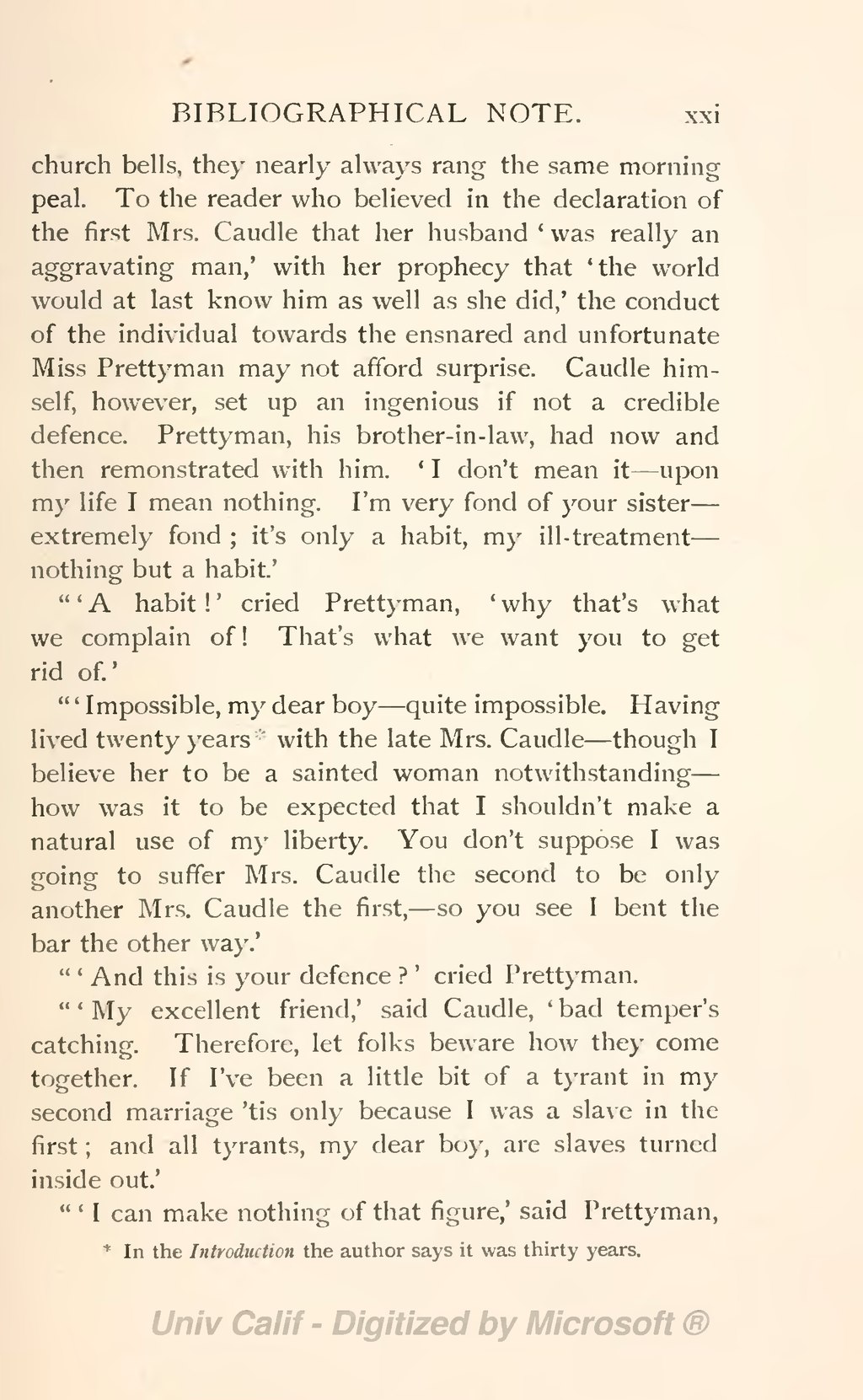church bells, they nearly always rang the same morning peal. To the reader who believed in the declaration of the first Mrs. Caudle that her husband 'was really an aggravating man,' with her prophecy that 'the world would at last know him as well as she did,' the conduct of the individual towards the ensnared and unfortunate Miss Prettyman may not afford surprise. Caudle himself, however, set up an ingenious if not a credible defence. Prettyman, his brother-in-law, had now and then remonstrated with him. 'I don't mean it—upon my life I mean nothing. I'm very fond of your sister—extremely fond; it's only a habit, my ill-treatment—nothing but a habit'
"'A habit!' cried Prettyman, 'why that's what we complain of! That's what we want you to get rid of.'
'Impossible, my dear boy—quite impossible. Having lived twenty years[1] with the late Mrs. Caudle—though I believe her to be a sainted woman notwithstanding— how was it to be expected that I shouldn't make a natural use of my liberty. You don't suppose I was going to suffer Mrs. Caudle the second to be only another Mrs. Caudle the first,—so you see I bent the bar the other way.'
"'And this is your defence?' cried Prettyman.
"'My excellent friend,' said Caudle, 'bad temper's catching. Therefore, let folks beware how they come together. If I've been a little bit of a tyrant in my second marriage 'tis only because I was a slave in the first; and all tyrants, my dear boy, are slaves turned inside out.'
"'I can make nothing of that figure,' said Prettyman,
- ↑ In the Introduction the author says it was thirty years.
